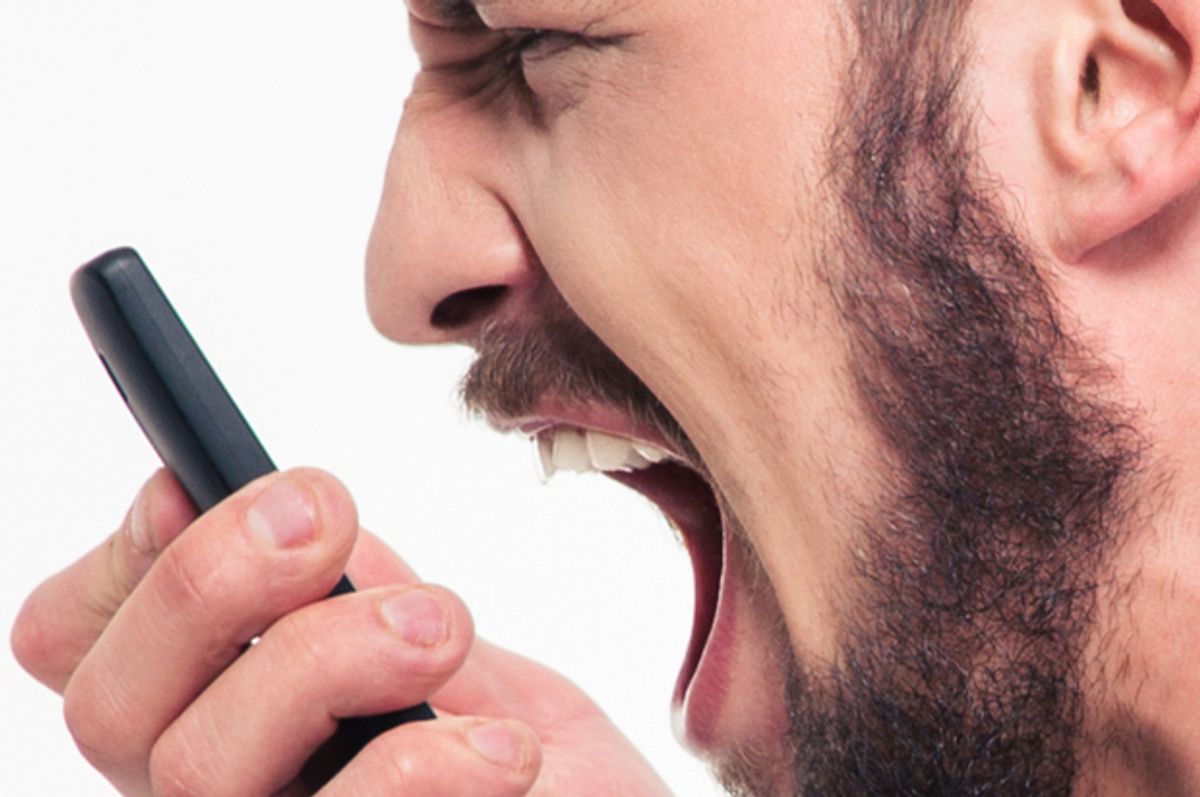The open enrollment period for obtaining health insurance for 2019 through the Affordable Care Act started Nov. 1.
But for health insurance scammers, the season’s been in full swing for a while.
Nearly half a billion — that’s billion with “b” — health insurance scam robocalls were made in September, according to YouMail’s Robocall Index.
In addition, there was a new monthly record for robocalls in October, with 5.1 billion received. Scams made up 42 percent of all robocalls.
YouMail’s services include blocking robocalls as part of its automated virtual receptionist software. It’s been tracking robocalls via its index since 2015.
Robocalls are proliferating at a near-exponential rate, so how are companies allowed to do this?
Strictly speaking, most aren’t.
“If you get a recorded sales call, but you didn’t give the caller written permission to call you, the call is illegal,” Bridget Small, a consumer education specialist at the Federal Trade Commission (FTC), wrote in a blog post about health insurance scams.
Scams up, enrollments down
The rules don’t seem to stop unscrupulous parties from sending hundreds of millions of robocalls daily.
That’s because a combination of autodialers and ID spoofing technology — the latter of which masks the true origin of a phone number — makes tracing these calls and holding people responsible a tough job, the FTC says.
Then there’s staffing levels. The FTC only has 43 employees in the division that supervises unwanted calls, The Washington Post reported earlier this year.
Read more Healthline: More Insurers, Low Rate Hikes: Obamacare Looks Healthy for 2019
Among these robocalls, health insurance scams are the most popular, which YouMail’s data show have been steadily increasing in volume.
People are used to giving away a lot of information to obtain health insurance. This makes people looking for insurance a ripe target for scammers, Alex Quilici, CEO of YouMail, told Healthline.
From that perspective, it makes sense that health insurance scam calls would increase right around the time people using Obamacare plans are trying to renew or obtain insurance.
So far, enrollments in Obamacare plans are down about 16 percent this year compared to last year, according to the White House. Critics have pointed to cuts in funding for outreach as well as new rules as part of the problem.
That leaves fertile ground for insurance scammers looking to capitalize.
“Health insurance is expensive, so people are always looking to save, plus it’s a universal need,” Quilici said. “People are looking for help.”
By the numbers
People in the United States are projected to lose almost $9 billion to phone scams in 2018, according to research from Truecaller and The Harris Poll.
No one is immune from being targeted by scam calls, and a surprising number of people fall for them, the research shows.
The study found that 1 in 10 Americans fell for scam calls in the previous year, with college grads twice as likely to fall for phone scams compared to those with no college education (14 percent vs. 7 percent).
Counter to the idea that seniors are especially vulnerable to falling for phone scams, the bulk who fell for the scam — 66 percent — were between ages 18 and 44.
How to help yourself and others
With federal authorities tasked with overseeing unwanted calls overextended and underfunded, blocking unwanted calls has fallen to private parties.
Smartphone apps, like YouMail’s and Nomorobo, among others, try to prevent robocalls by maintaining extensive lists of bad numbers and integrating user feedback and algorithmic identification to stop robocallers.
But even the best apps can’t catch every single robocaller. So what do you do if you receive one?
“Don’t press 1 to speak to the operator or get your name taken off the list, and don’t give any personal information,” Small wrote in her post for the FTC. “If you respond, you’ll probably get more calls.”
Healthcare marketplace workers don’t make cold calls, so unless you’re already on the exchange and have agreed to receive calls, anyone who tells you otherwise is pulling your chain.
Read more Healthline: Obamacare Helped Keep Rural Hospitals Open
It’s not just Obamacare plans that scammers target, either.
After the FTC announced that Medicare recipients would be receiving new cards with new numbers in the mail, scammers took the opportunity to cold-call Medicare beneficiaries to try to trick them into giving away valuable personal data, the commission reported.
“Just assume any inbound health insurance call is a scam,” Quilici said. “Seriously. Don’t answer unknown callers, but if you do and they start talking about health insurance, hang up.”
If you can, try to educate family members and friends that these calls are scams and they should call their insurance companies (or go to HealthCare.gov) directly.
And get them to sign up for call-blocking apps.
But the simplest solution might be the oldest: Screen your calls.
“In general, an ounce of prevention is worth a pound of cure,” Quilici said. “And not answering the phone goes a long way here.”




Shares